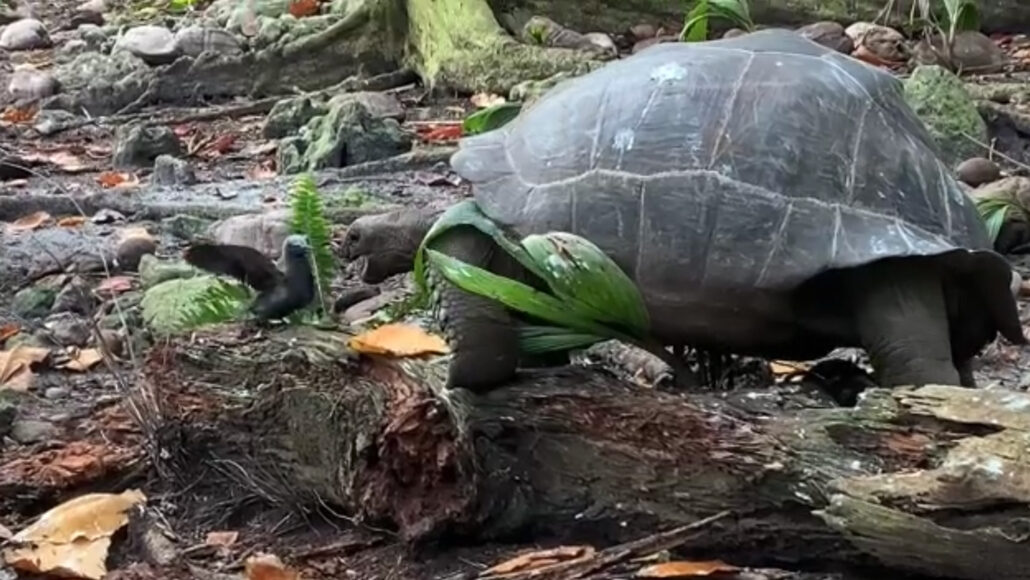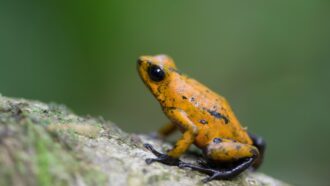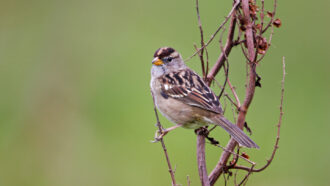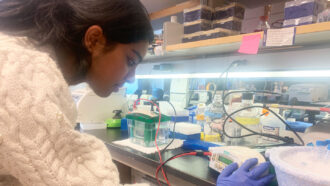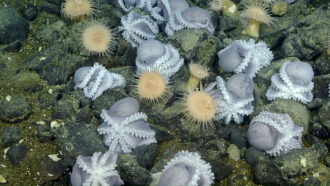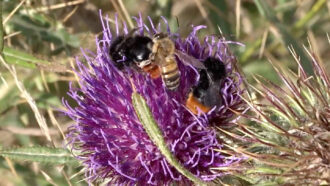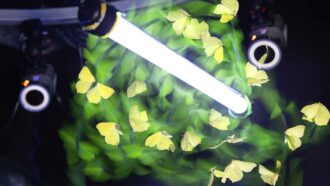archipelago: A group of islands, many times forming in an arc across a broad expanse of the oceans. Examples include the Hawaiian islands, the Aleutian islands and the more than 300 islands in the Republic of Fiji.
biology: The study of living things. The scientists who study them are known as biologists.
colleague: Someone who works with another; a co-worker or team member.
conservation: The act of preserving or protecting something. The focus of this work can range from art objects to endangered species and other aspects of the natural environment.
footage: (in movies and videos) A term for the uncut or unprocessed motion pictures or video imagery taken by a camera. It takes its name from the fact that it took several feet of film to capture a few seconds of motion-picture photography.
herbivore: A creature that either exclusively or primarily eats plants.
prey: (n.) Animal species eaten by others. (v.) To attack and eat another species.
protein: A compound made from one or more long chains of amino acids. Proteins are an essential part of all living organisms. They form the basis of living cells, muscle and tissues; they also do the work inside of cells. Among the better-known, stand-alone proteins are the hemoglobin (in blood) and the antibodies (also in blood) that attempt to fight infections. Medicines frequently work by latching onto proteins.
reptile: Cold-blooded vertebrate animals, whose skin is covered with scales or horny plates. Snakes, turtles, lizards and alligators are all reptiles.
sustainability: (adj: sustainable) To use resources in a way that they will continue to be available in the future.
tortoise: Any of various turtles that live on land.
